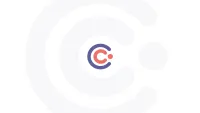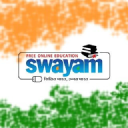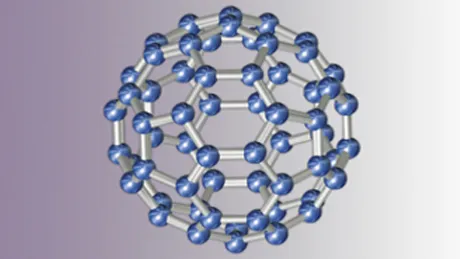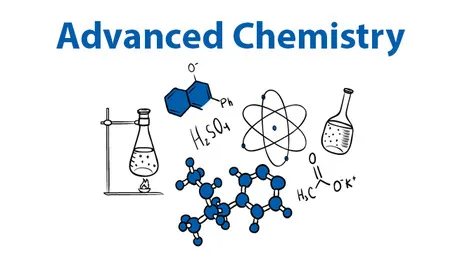
Application of Spectroscopic Methods in Molecular Structure Determination 
This course provides an introduction to spectroscopic methods for molecular structure determination. It covers Nuclear Magnetic Resonance (NMR) spectroscopy, Mass Spectrometry, Infra-red spectroscopy, and UV-Vis spectroscopy. Students will learn to recognize spin-spin splitting patterns, solve structure elucidation problems, and analyze functional groups and electronic transitions. Through skill training, students will be able to apply multiple spectroscopic data to solve structure elucidation problems. ▼
ADVERTISEMENT
Course Feature
![]() Cost:
Cost:
Free
![]() Provider:
Provider:
Swayam
![]() Certificate:
Certificate:
No Information
![]() Language:
Language:
English
![]() Start Date:
Start Date:
Self Paced
Course Overview
❗The content presented here is sourced directly from Swayam platform. For comprehensive course details, including enrollment information, simply click on the 'Go to class' link on our website.
Updated in [May 25th, 2023]
This course provides an introduction to spectroscopic methods and their application in molecular structure determination. Topics covered include Nuclear Magnetic Resonance (NMR) spectroscopy, spin ½ nuclei, 1H and 13C-NMR spectroscopy, FT-NMR method, chemical shifts, spin spin coupling, spin-spin splitting pattern recognition for structure elucidation, coupling constants, second order effects in NMR spectrum, AB and AA’BB’, ABC spin systems, stereochemistry determination using NMR techniques, dynamic processes by NMR spectroscopy, Mass Spectrometry, various ionization methods, fragmentation patterns of simple organic molecules, HRMS, Infra-red spectroscopy, functional group analysis and identification using IR spectroscopy, structural effects on vibrational frequency, UV-Vis spectroscopy, electronic transitions in organic molecules, selection rules, application of Beer Lambert law, qualitative and quantitative analysis by UV-Vis spectroscopy, and solving structure elucidation problems using multiple spectroscopic data.
[Applications]
The application of the course on Spectroscopic Methods in Molecular Structure Determination can be seen in various fields. It can be used to solve structure elucidation problems using NMR, MS, IR and UV-Vis spectroscopy. It can also be used to identify functional groups and analyze electronic transitions in organic molecules. Additionally, it can be used to study dynamic processes by NMR spectroscopy and to analyze qualitative and quantitative data by UV-Vis spectroscopy. Furthermore, it can be used to recognize spin-spin splitting patterns and to determine stereochemistry using NMR techniques.
[Career Paths]
1. Spectroscopy Technician: Spectroscopy technicians are responsible for operating and maintaining spectroscopic instruments, such as NMR, FT-NMR, Mass Spectrometry, Infrared Spectroscopy, and UV-Vis Spectroscopy. They must be knowledgeable in the principles of spectroscopy and be able to interpret spectroscopic data. As the use of spectroscopy in research and industry continues to grow, the demand for spectroscopy technicians is expected to increase.
2. Spectroscopy Researcher: Spectroscopy researchers use spectroscopic techniques to study the structure and properties of molecules. They must be knowledgeable in the principles of spectroscopy and be able to interpret spectroscopic data. As the use of spectroscopy in research and industry continues to grow, the demand for spectroscopy researchers is expected to increase.
3. Spectroscopy Analyst: Spectroscopy analysts use spectroscopic techniques to analyze the structure and properties of molecules. They must be knowledgeable in the principles of spectroscopy and be able to interpret spectroscopic data. As the use of spectroscopy in research and industry continues to grow, the demand for spectroscopy analysts is expected to increase.
4. Spectroscopy Consultant: Spectroscopy consultants provide advice and guidance to clients on the use of spectroscopic techniques. They must be knowledgeable in the principles of spectroscopy and be able to interpret spectroscopic data. As the use of spectroscopy in research and industry continues to grow, the demand for spectroscopy consultants is expected to increase.
[Education Paths]
1. Bachelor of Science in Chemistry: This degree program provides students with a comprehensive understanding of the fundamentals of chemistry, including topics such as organic chemistry, physical chemistry, and biochemistry. Students will also learn about spectroscopic methods and their application in molecular structure determination. This degree is becoming increasingly popular as it provides students with the skills and knowledge needed to pursue a career in the field of chemistry.
2. Master of Science in Analytical Chemistry: This degree program focuses on the application of analytical techniques to solve problems in chemistry. Students will learn about the principles and techniques of spectroscopy, including nuclear magnetic resonance spectroscopy, mass spectrometry, infrared spectroscopy, and ultraviolet-visible spectroscopy. They will also gain an understanding of the use of these techniques in the determination of molecular structure. This degree is becoming increasingly popular as it provides students with the skills and knowledge needed to pursue a career in the field of analytical chemistry.
3. Doctor of Philosophy in Spectroscopy: This degree program focuses on the advanced study of spectroscopic methods and their application in molecular structure determination. Students will learn about the principles and techniques of spectroscopy, including nuclear magnetic resonance spectroscopy, mass spectrometry, infrared spectroscopy, and ultraviolet-visible spectroscopy. They will also gain an understanding of the use of these techniques in the determination of molecular structure. This degree is becoming increasingly popular as it provides students with the skills and knowledge needed to pursue a career in the field of spectroscopy.
4. Master of Science in Molecular Spectroscopy: This degree program focuses on the application of spectroscopic methods to solve problems in molecular structure determination. Students will learn about the principles and techniques of spectroscopy, including nuclear magnetic resonance spectroscopy, mass spectrometry, infrared spectroscopy, and ultraviolet-visible spectroscopy. They will also gain an understanding of the use of these techniques in the determination of molecular structure. This degree is becoming increasingly popular as it provides students with the skills and knowledge needed to pursue a career in the field of molecular spectroscopy.
Course Provider

Provider Swayam's Stats at AZClass
Discussion and Reviews
0.0 (Based on 0 reviews)
Explore Similar Online Courses

Introduction to Applied Biostatistics: Statistics for Medical Research

Sew With Your Serger: Quick & Easy Projects

Python for Informatics: Exploring Information

Social Network Analysis

Introduction to Systematic Review and Meta-Analysis

The Analytics Edge

DCO042 - Python For Informatics

Causal Diagrams: Draw Your Assumptions Before Your Conclusions

Whole genome sequencing of bacterial genomes - tools and applications

General Chemistry: Concept Development and Application

Advanced Chemistry

Free Chemistry Tutorial - Chemistry 101 - Chemistry in Society
 Related Categories
Related Categories
 Popular Providers
Popular Providers
Quiz
 Submitted Sucessfully
Submitted Sucessfully
1. Which of the following spectroscopic methods is used to study dynamic processes?
2. Which of the following spectroscopic methods is used to determine the stereochemistry of a molecule?
3. Which of the following spectroscopic methods is used to analyze the functional groups of a molecule?


Start your review of Application of Spectroscopic Methods in Molecular Structure Determination